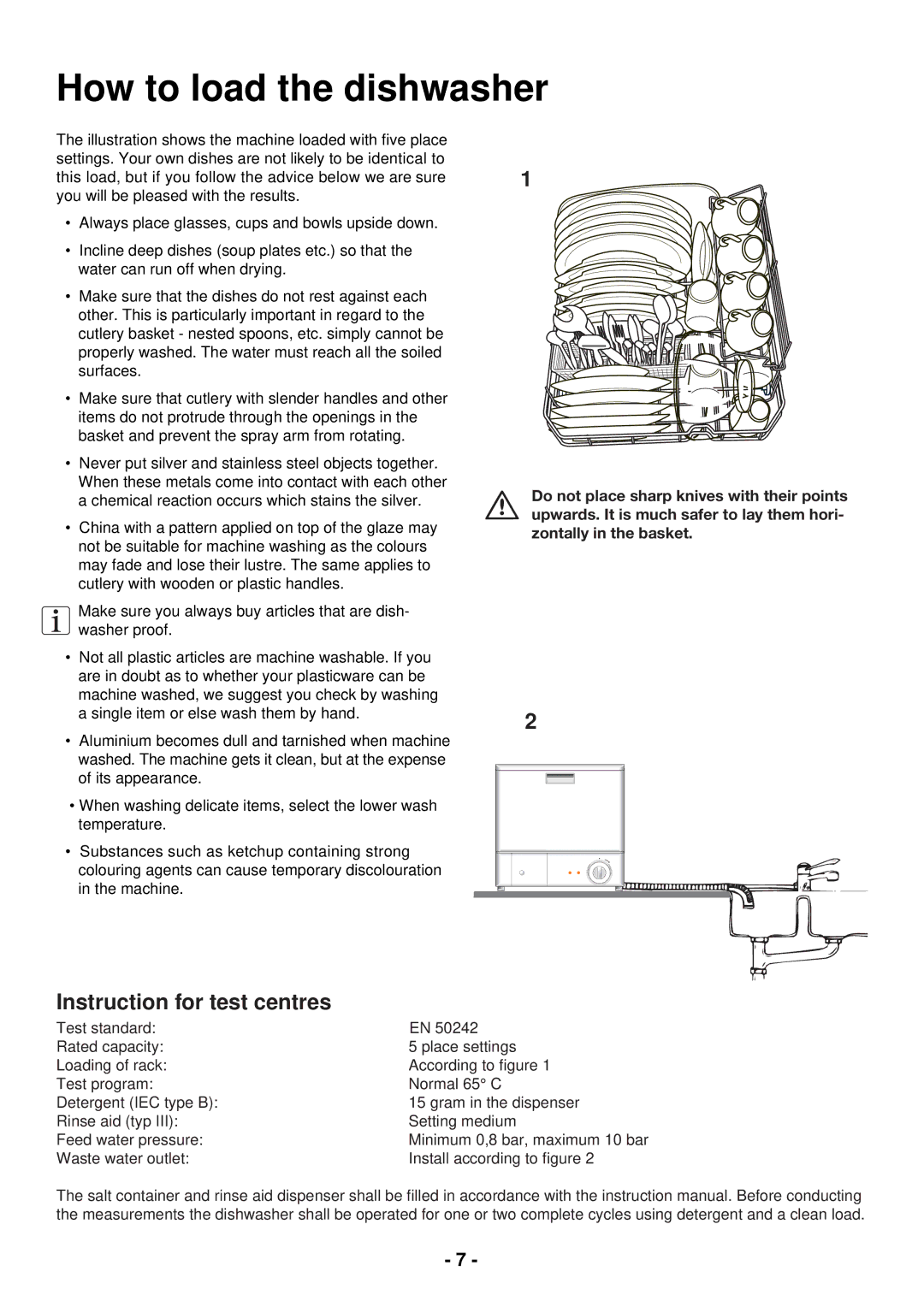
How to load the dishwasher
The illustration shows the machine loaded with five place settings. Your own dishes are not likely to be identical to this load, but if you follow the advice below we are sure you will be pleased with the results.
•Always place glasses, cups and bowls upside down.
•Incline deep dishes (soup plates etc.) so that the water can run off when drying.
•Make sure that the dishes do not rest against each other. This is particularly important in regard to the cutlery basket - nested spoons, etc. simply cannot be properly washed. The water must reach all the soiled surfaces.
•Make sure that cutlery with slender handles and other items do not protrude through the openings in the basket and prevent the spray arm from rotating.
•Never put silver and stainless steel objects together. When these metals come into contact with each other a chemical reaction occurs which stains the silver.
•China with a pattern applied on top of the glaze may not be suitable for machine washing as the colours may fade and lose their lustre. The same applies to cutlery with wooden or plastic handles.
Make sure you always buy articles that are dish- washer proof.
•Not all plastic articles are machine washable. If you are in doubt as to whether your plasticware can be machine washed, we suggest you check by washing a single item or else wash them by hand.
•Aluminium becomes dull and tarnished when machine washed. The machine gets it clean, but at the expense of its appearance.
•When washing delicate items, select the lower wash temperature.
•Substances such as ketchup containing strong colouring agents can cause temporary discolouration in the machine.
1
Do not place sharp knives with their points upwards. It is much safer to lay them hori- zontally in the basket.
2
Instruction for test centres
Test standard: | EN 50242 |
Rated capacity: | 5 place settings |
Loading of rack: | According to figure 1 |
Test program: | Normal 65° C |
Detergent (IEC type B): | 15 gram in the dispenser |
Rinse aid (typ III): | Setting medium |
Feed water pressure: | Minimum 0,8 bar, maximum 10 bar |
Waste water outlet: | Install according to figure 2 |
The salt container and rinse aid dispenser shall be filled in accordance with the instruction manual. Before conducting the measurements the dishwasher shall be operated for one or two complete cycles using detergent and a clean load.
- 7 -
